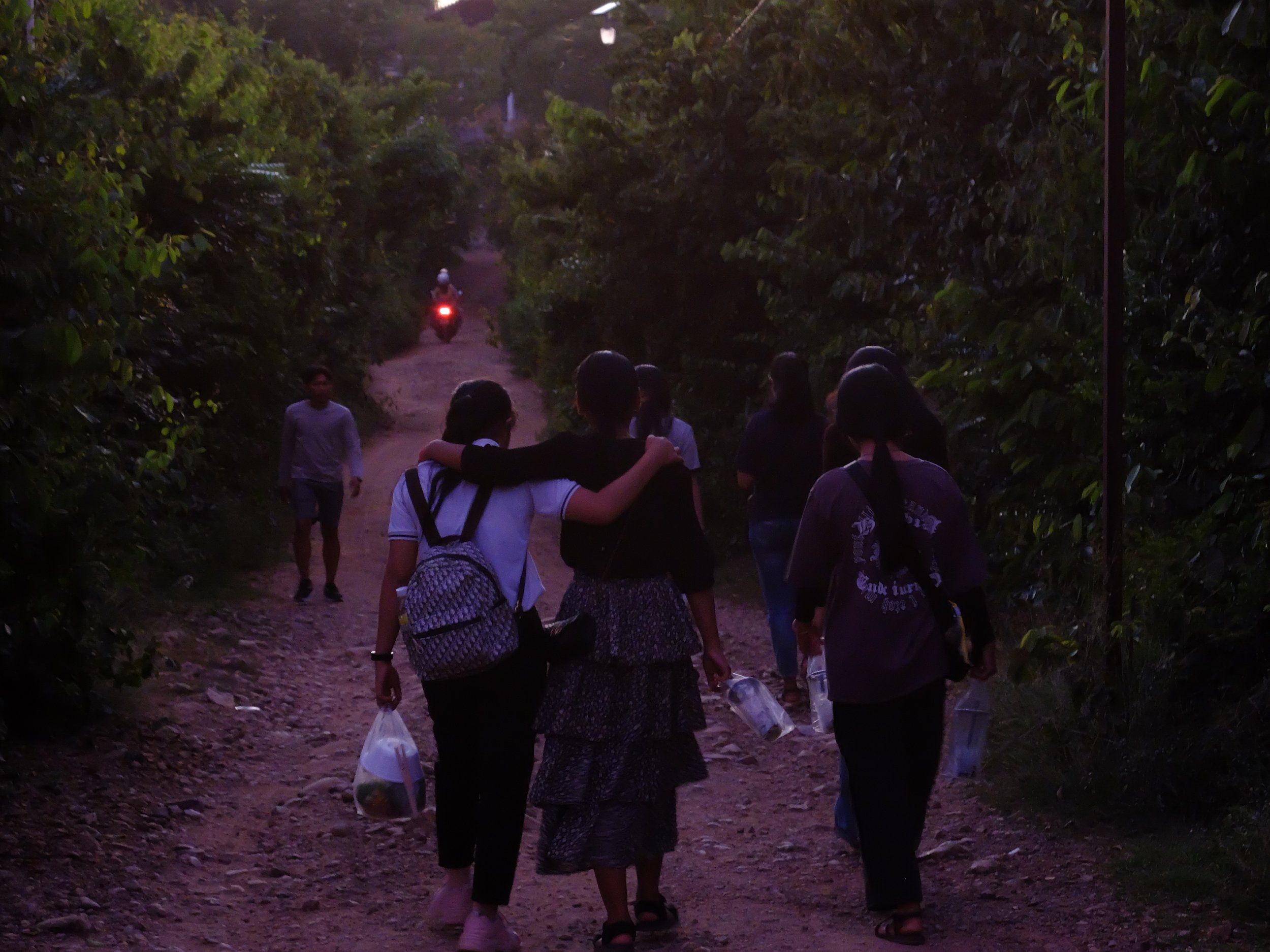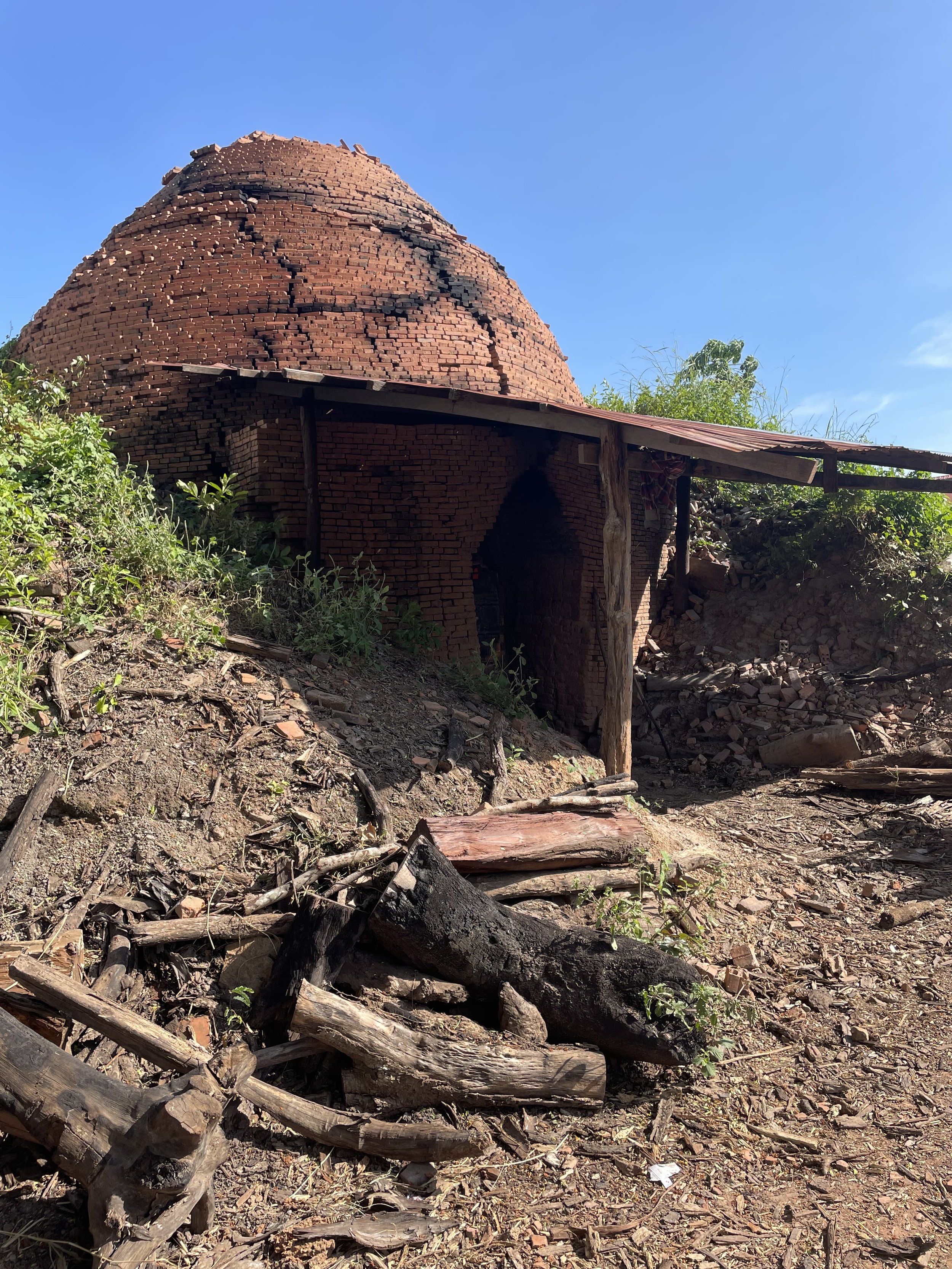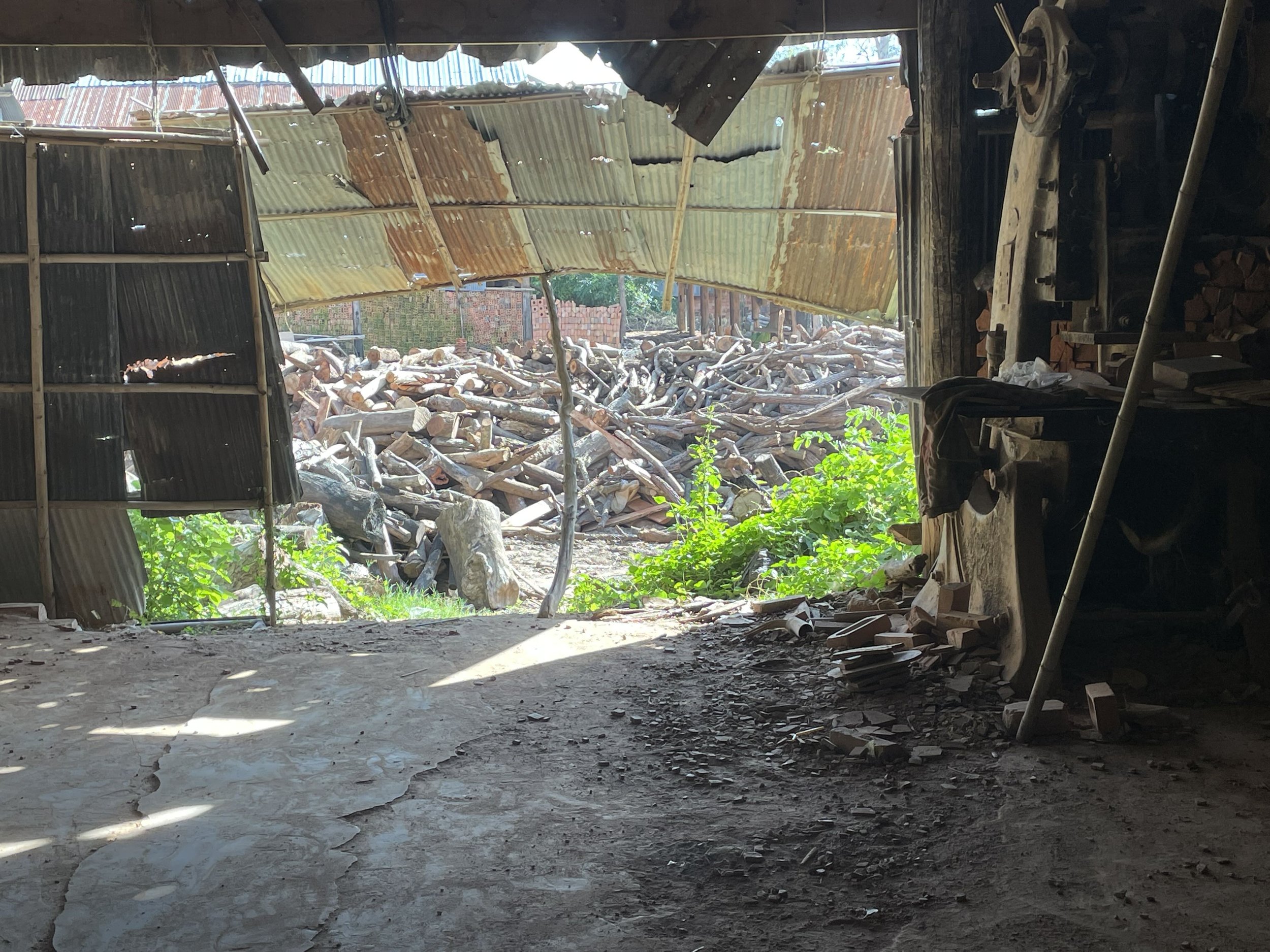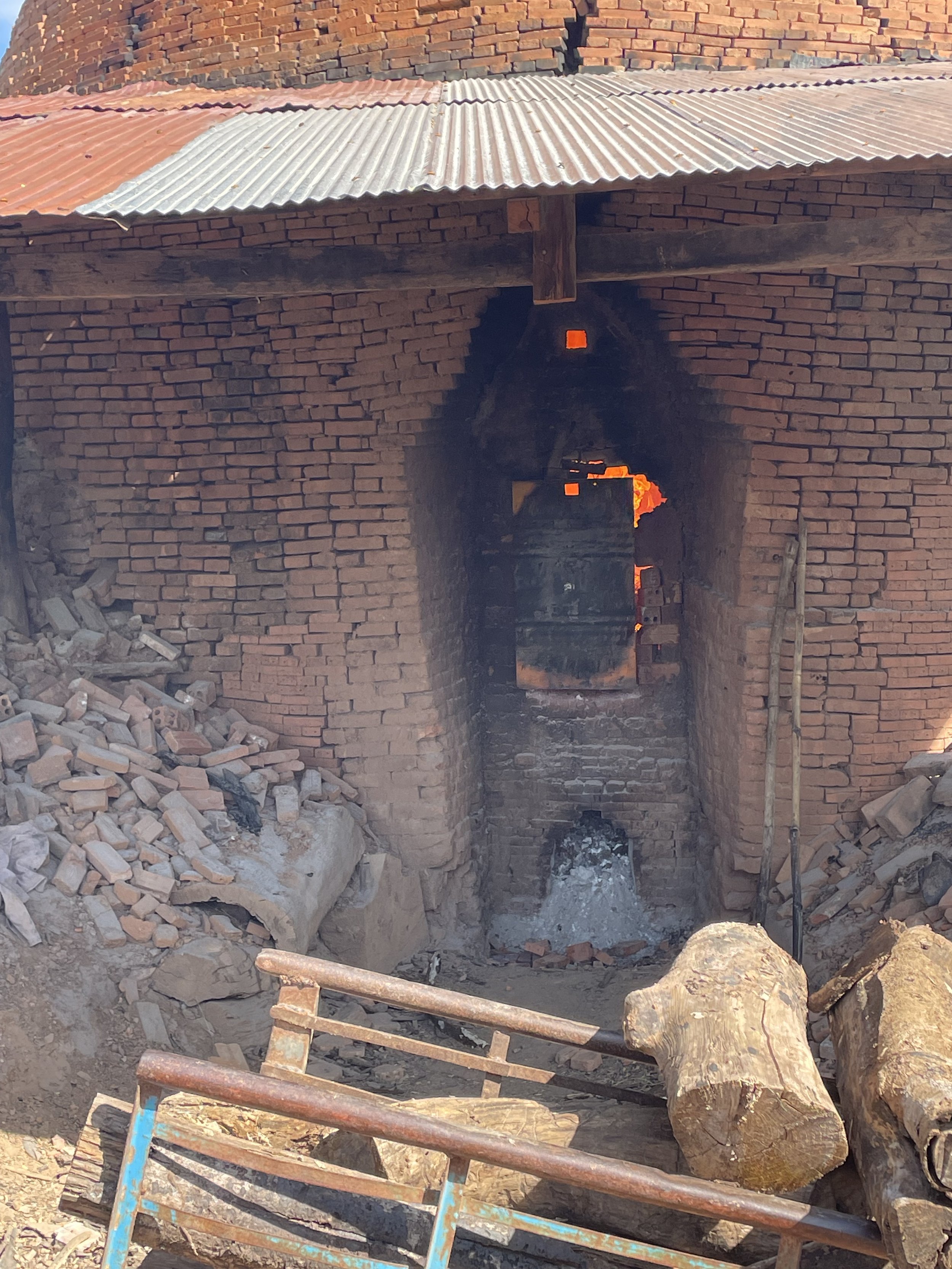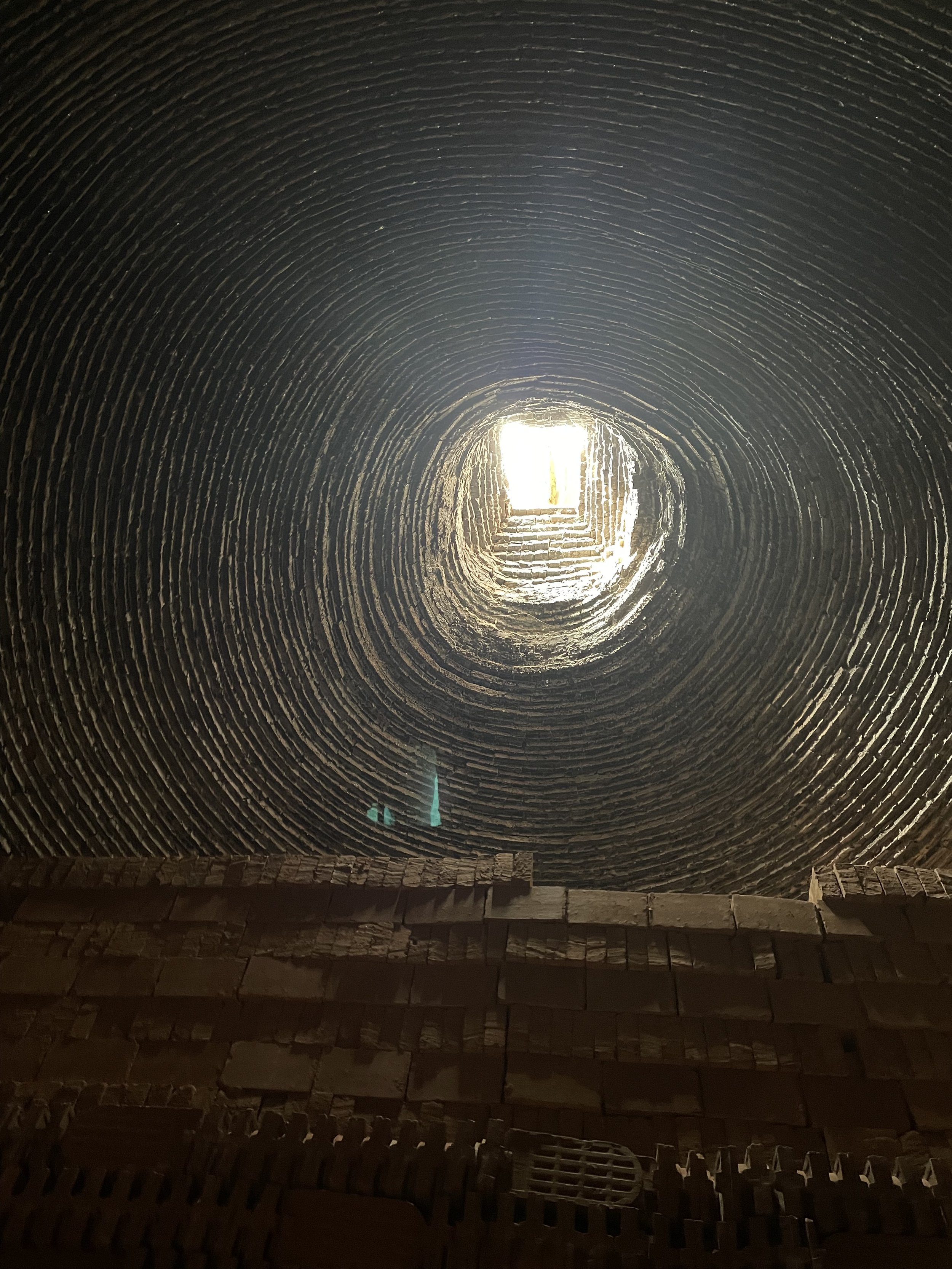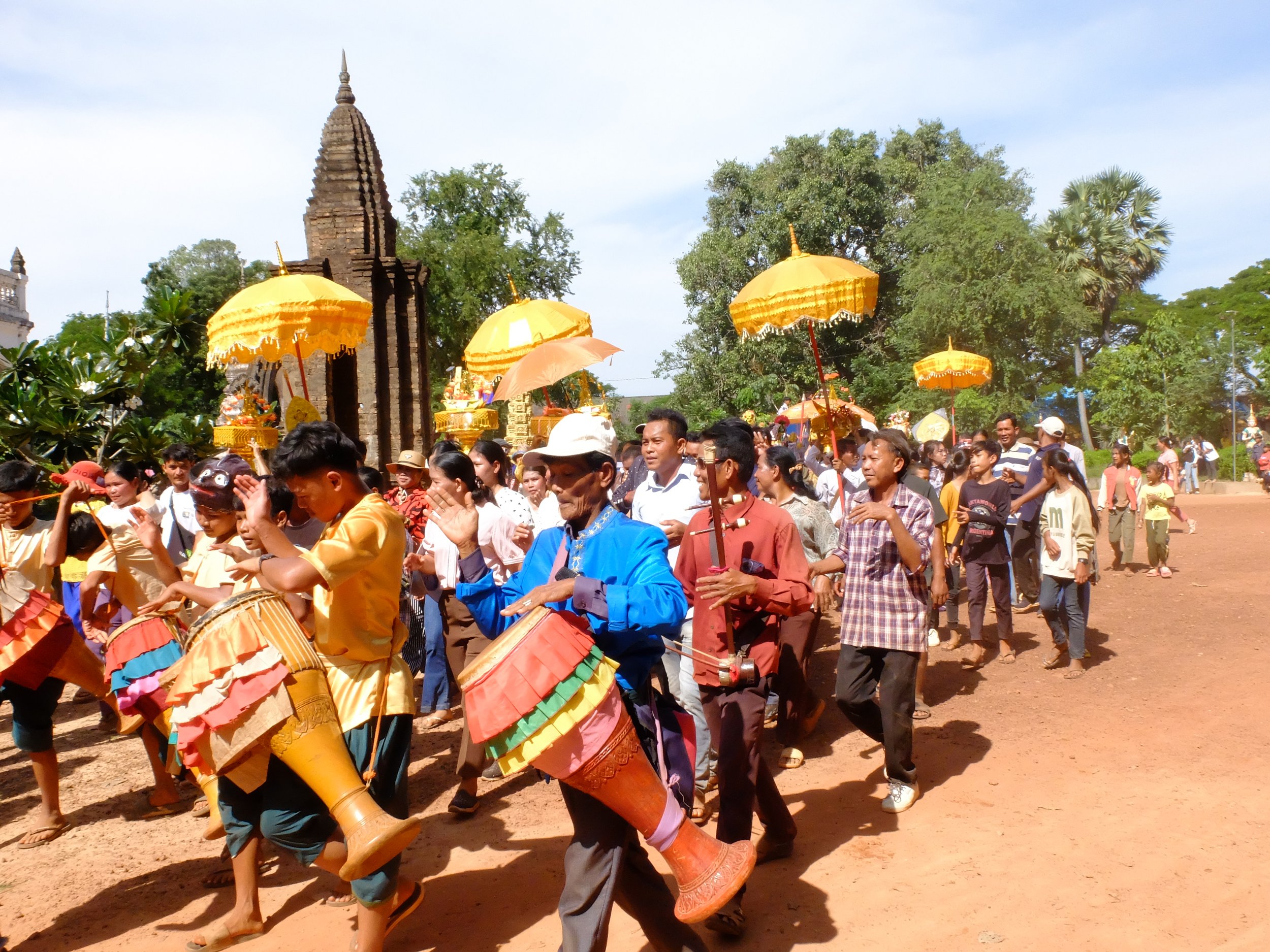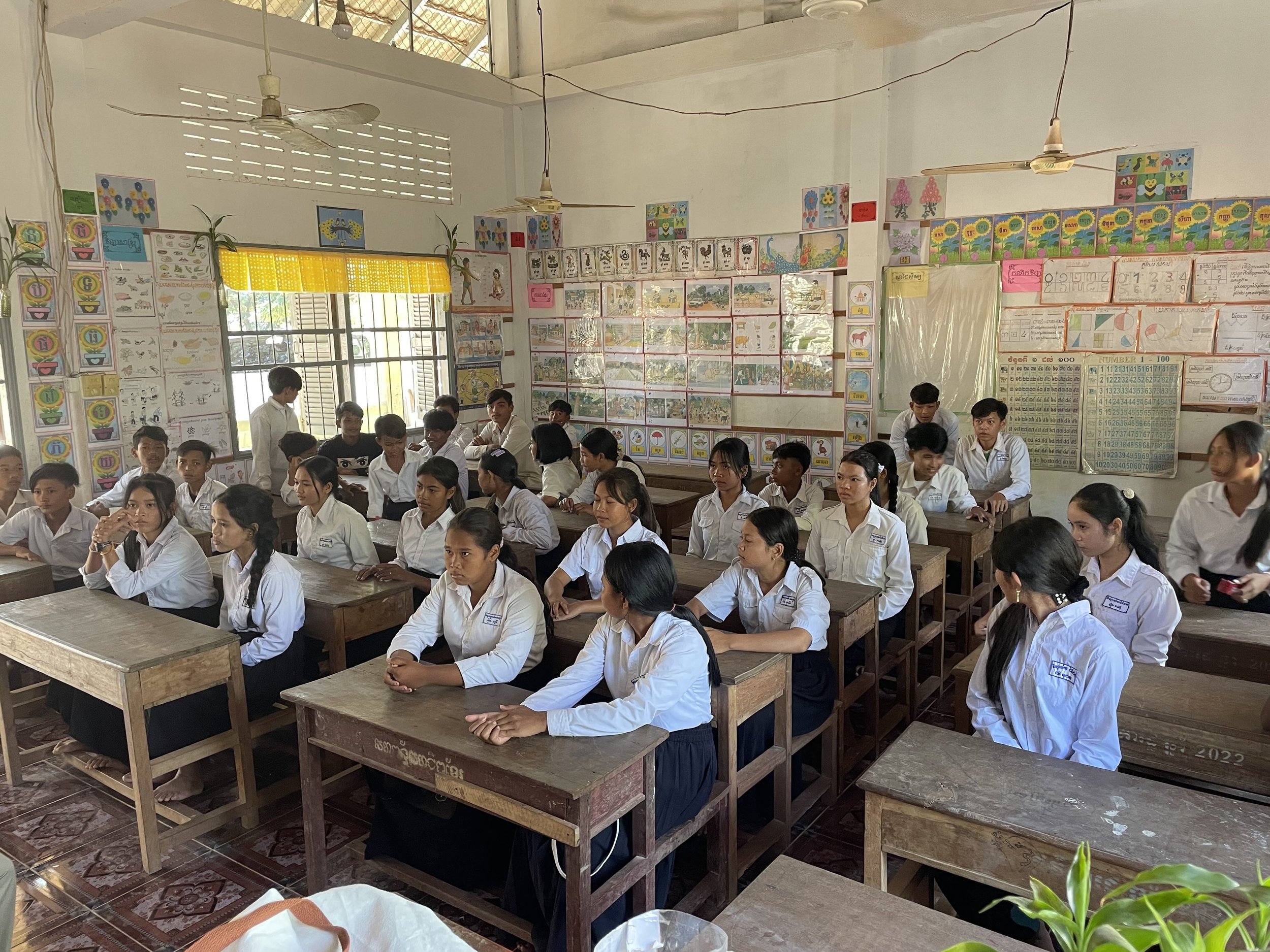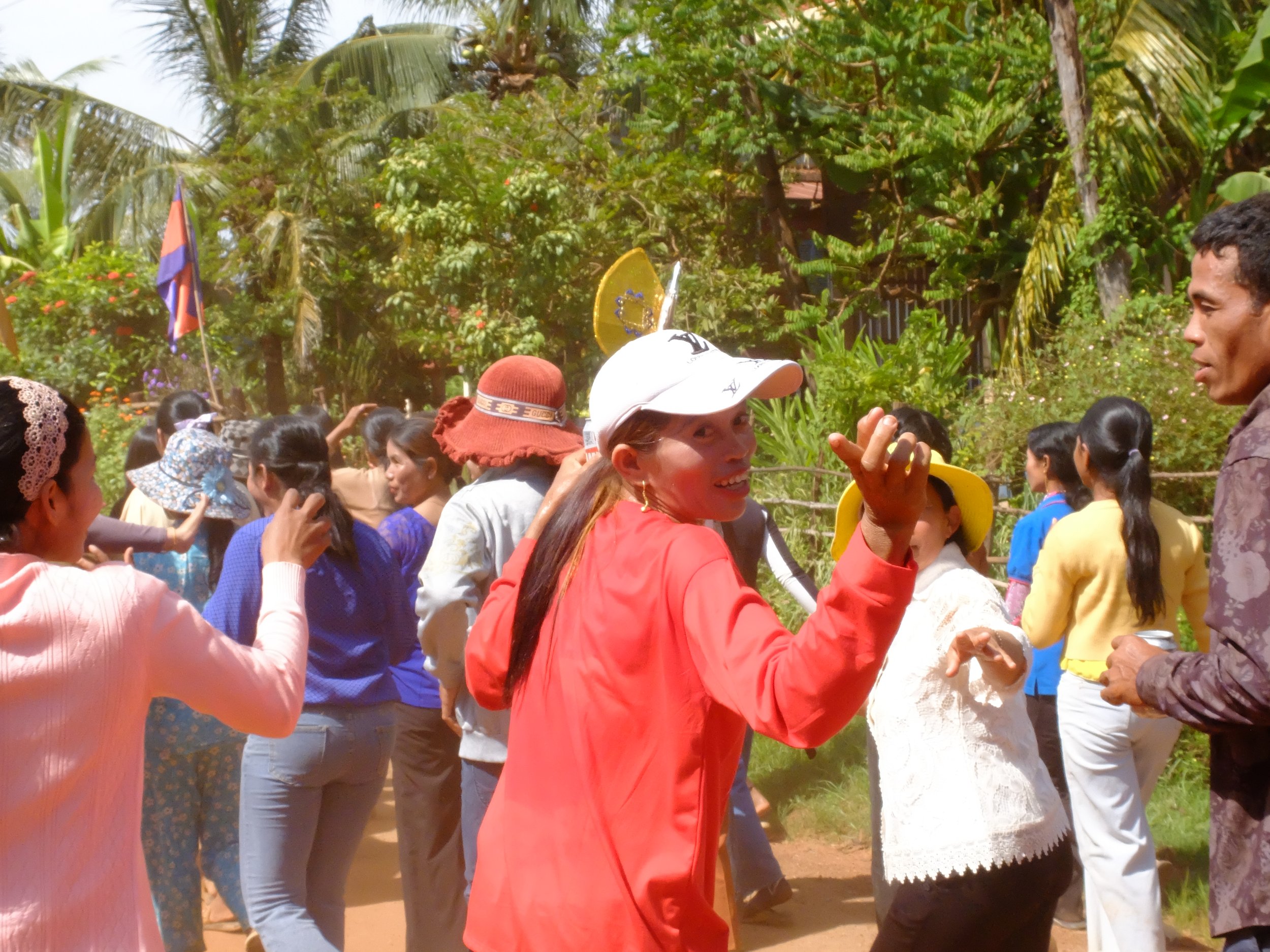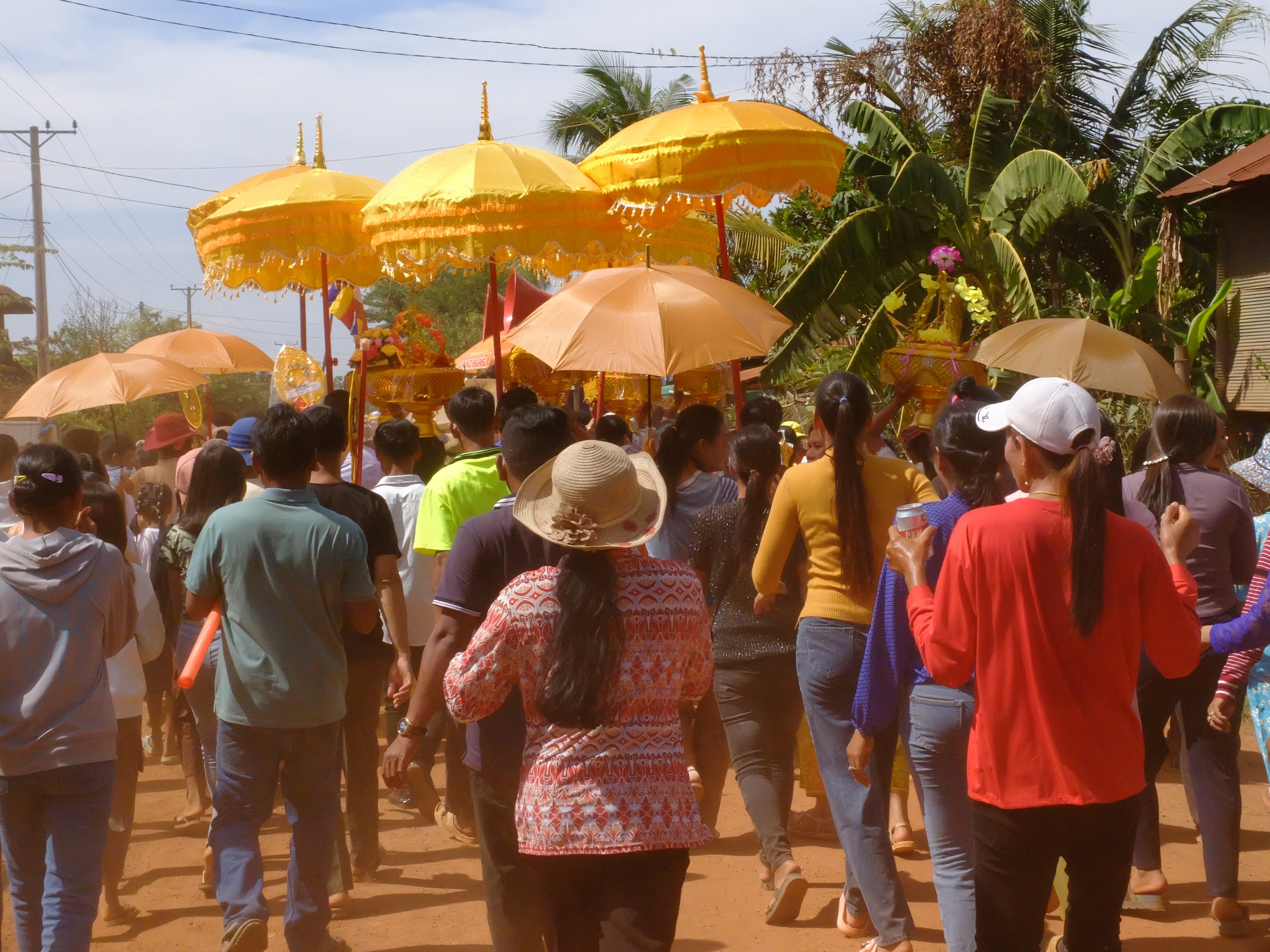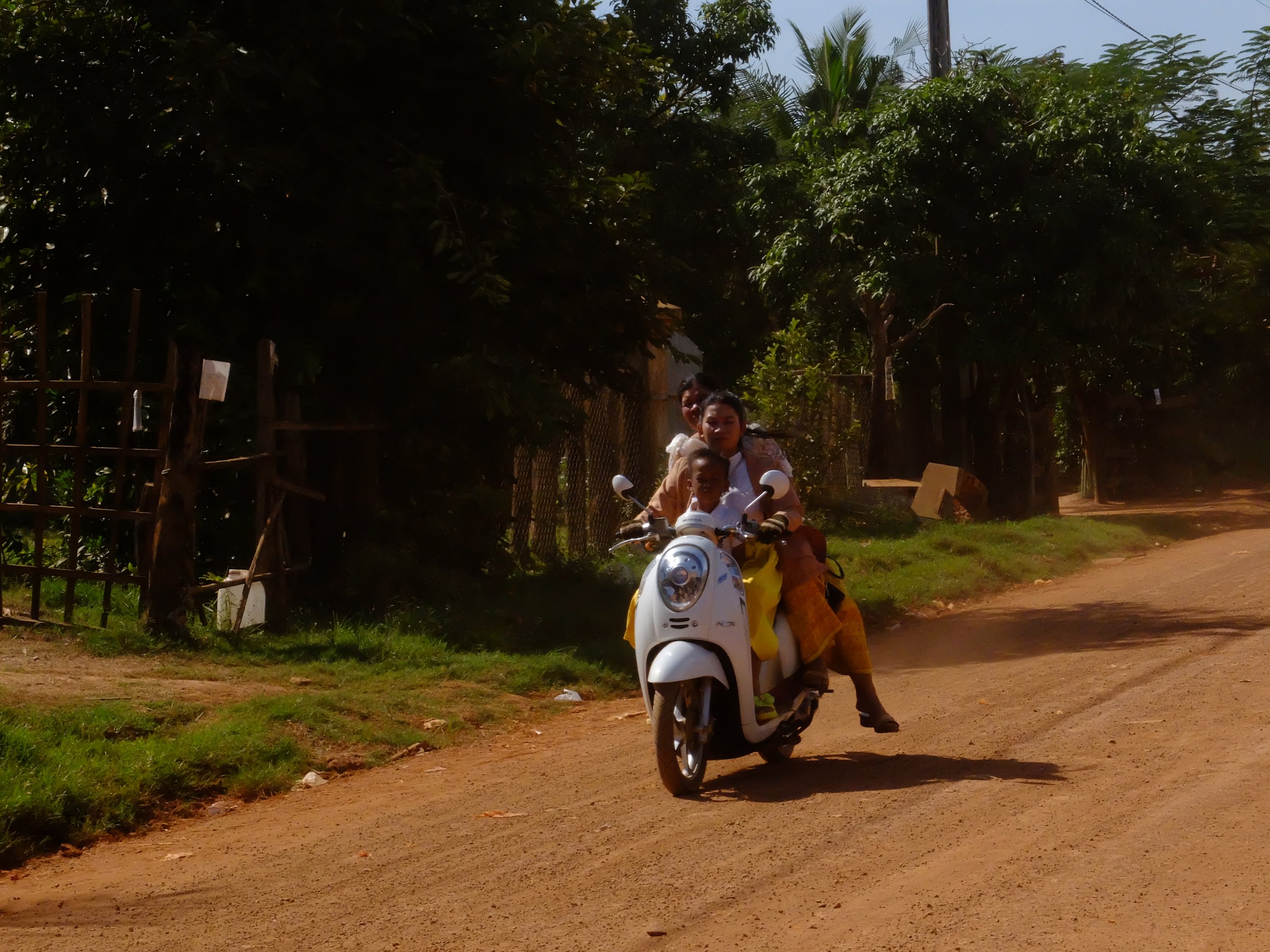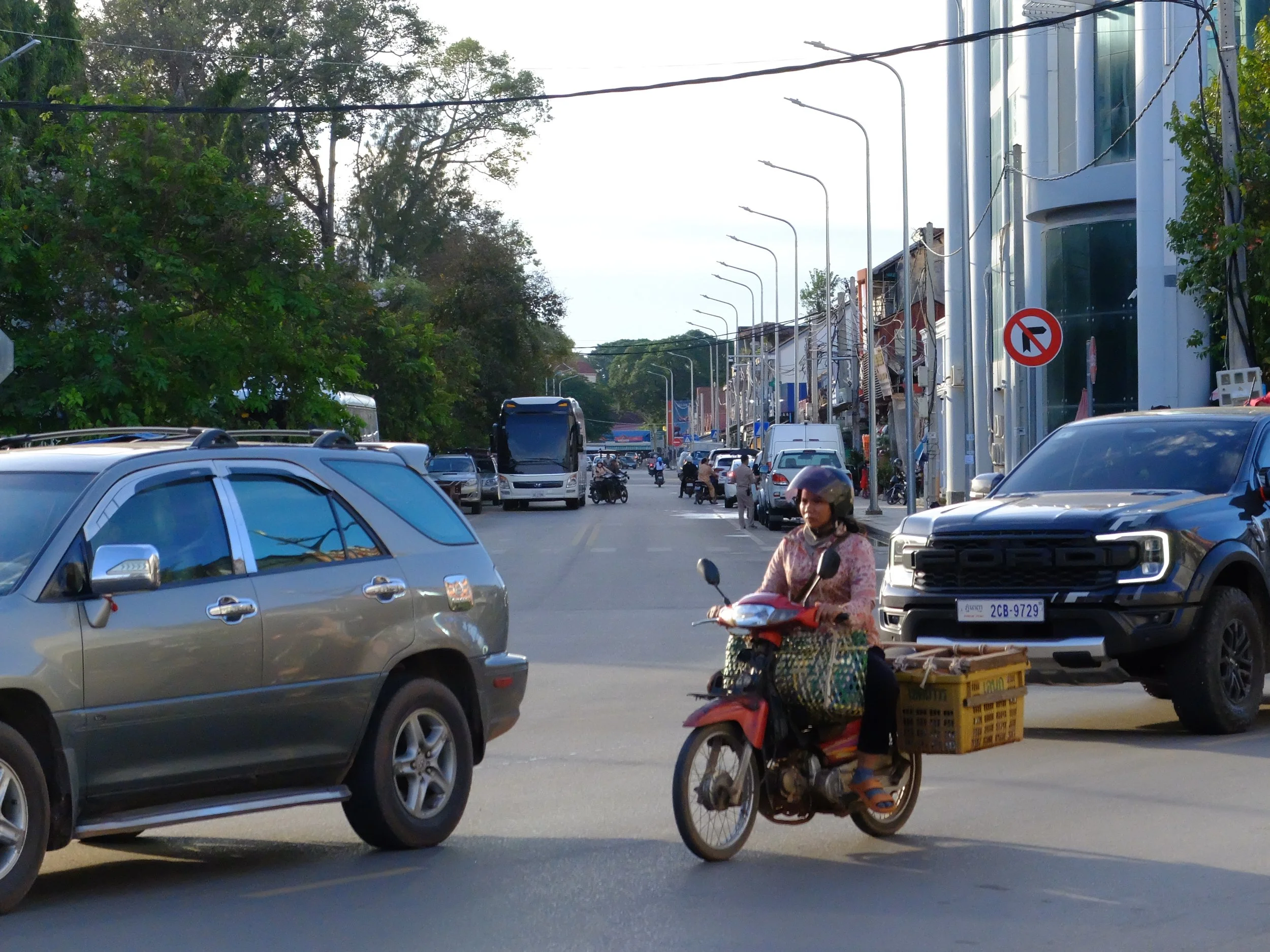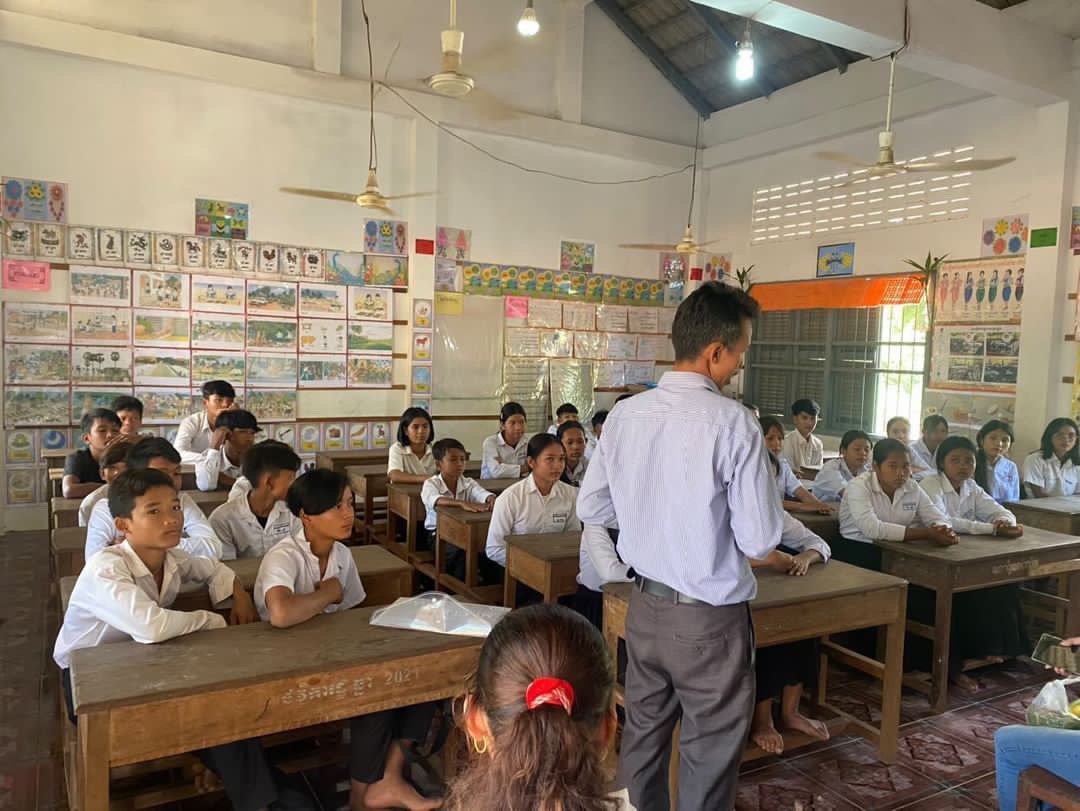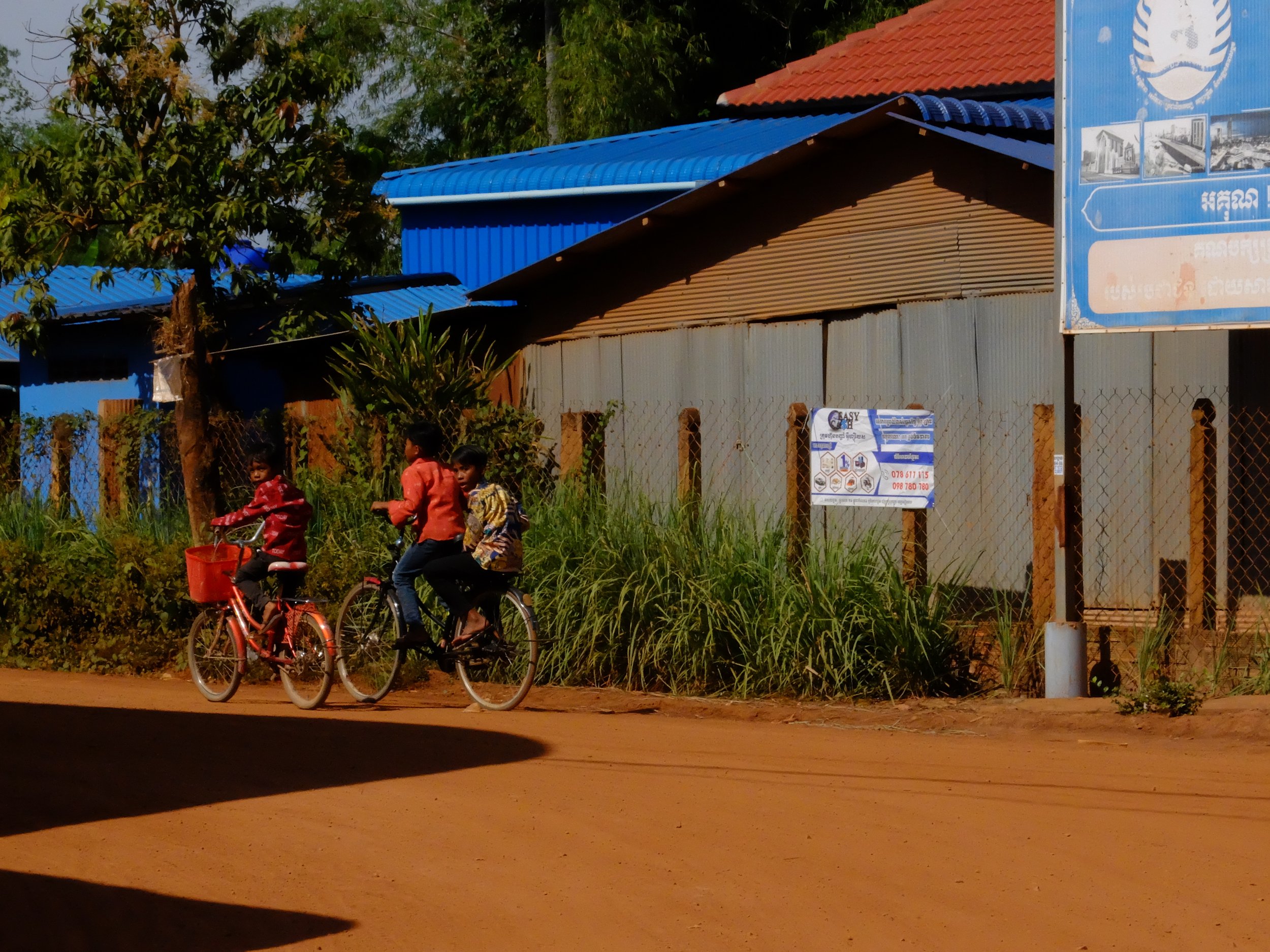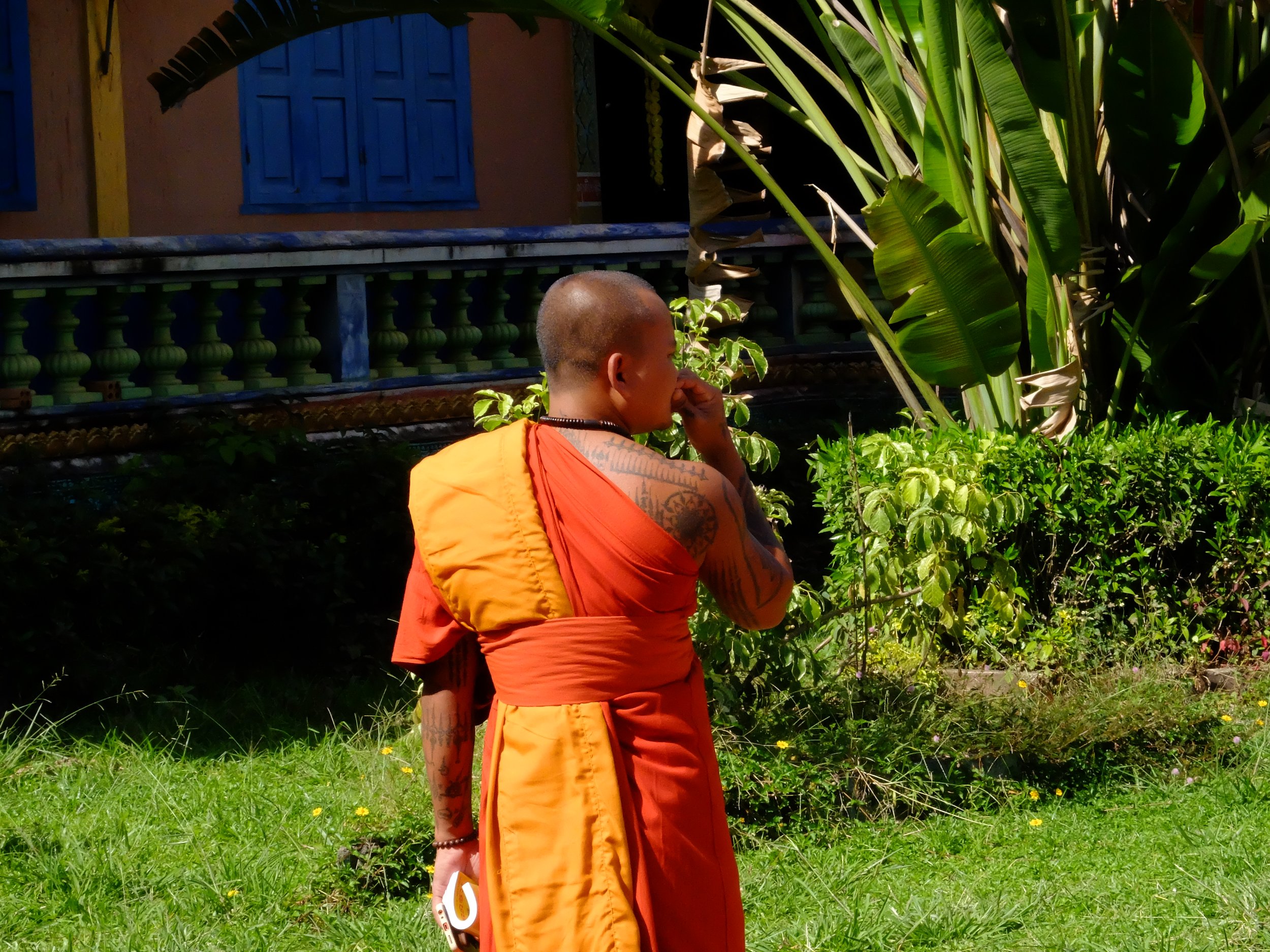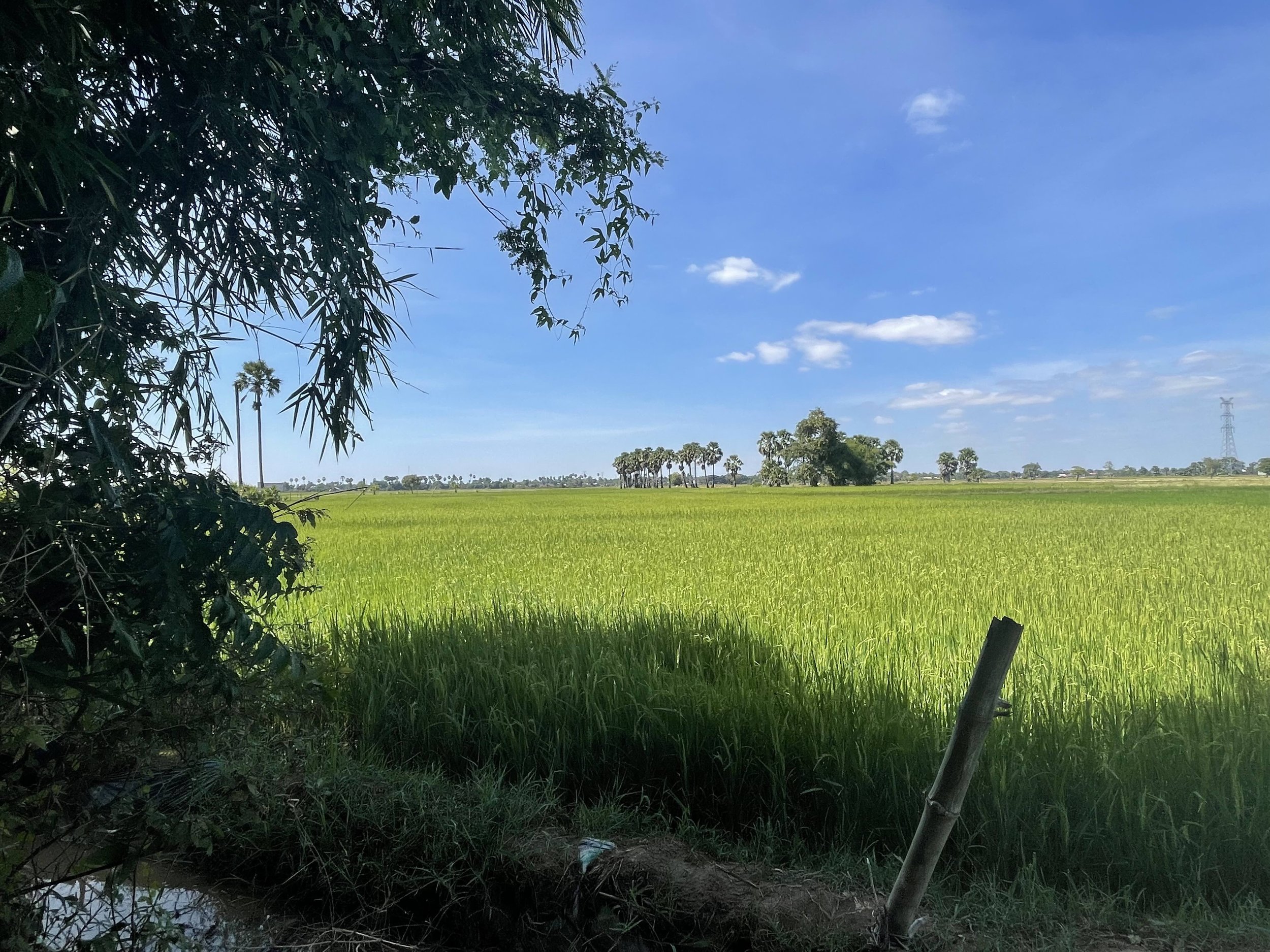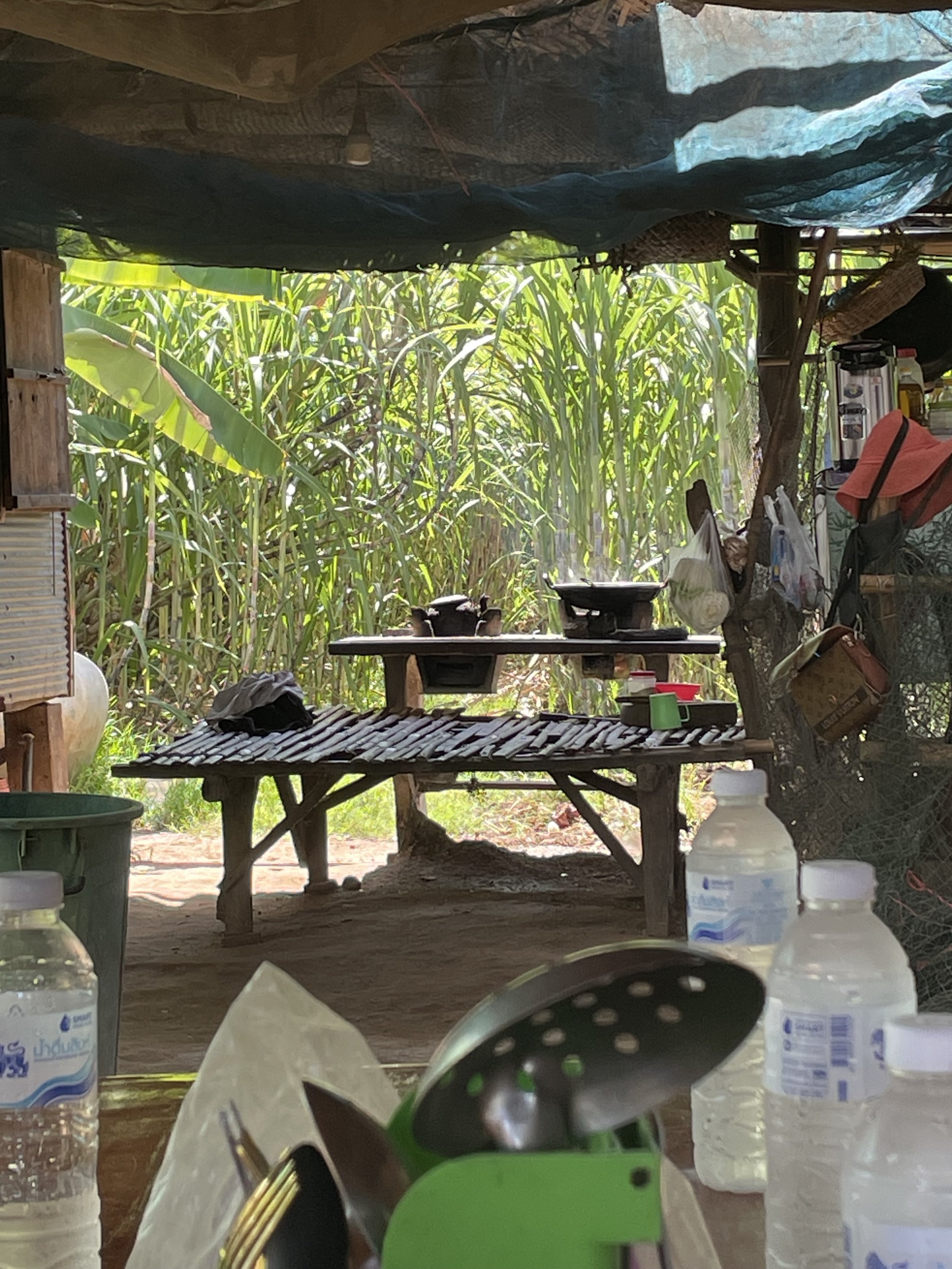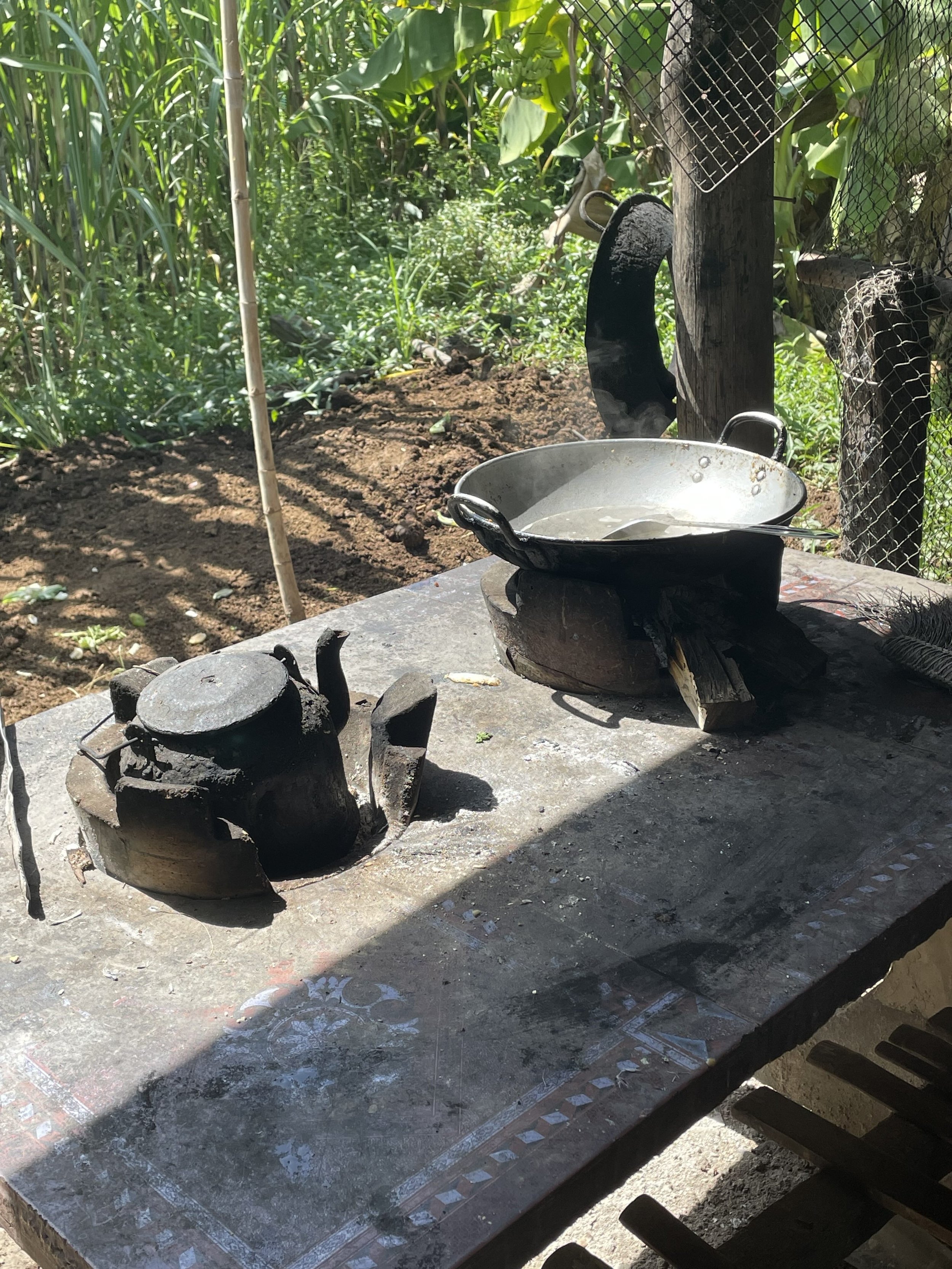Our System Integration Developer, Brian Lee, wrote the following post about his trips to Siem Reap, Cambodia, in 2022 and 2023, with another planned in 2024.
Aliases (names of significant places and people have been changed to respect their privacy):
Hotel Khmer: A boutique hotel in Siem Reap with less than 30 rooms.
Soma: A 25-year-old woman who works at the front desk of Hotel Khmer.
Keo: A 23-year-old man who works as a server at Hotel Khmer.
Mr. Sok: A man in his late 50s who wears many hats.
It started with a stay at Hotel Khmer in late 2022. Given that Siem Reap is a tourist-heavy area, hotels place a great deal on hospitality. The hotel industry permeates outside the city such that "hospitality" was cited by several children in rural Cambodia as a desired career path [at least among the students I met in 2023]. It's no surprise, given the relatively good salary that it can demand. Hotel staff interactions are much what you would expect. Guests are asked questions like, "What will you do today? Have you been to X? Etc."
Aside from thinking I wouldn't say anything they hadn't heard so many times before, I found these questions boring. With an anthropological mindset and a desire to know more about the people whose country I was visiting, I turned the line of questioning back towards them. Soma and Keo speak English fluently, so I began to ask them, "Do you have any hobbies? What will you do today after work? Do you live far from work? Who do you live with? Etc." They were quite receptive to my casual interrogation, and as intended, their answers led to me asking more questions. My interest was as genuine as their answers were honest and enthusiastic. Because of this, a certain rapport began to develop throughout multiple daily conversations with Soma and Keo in 2022. It isn't uncommon for hotel staff to exchange contact information with guests to stay in touch, but rarely do guests actually do so. Fast forward to late 2023, and my relationships with Soma and Keo had evolved as we kept in touch after I returned home.
Through weekly conversations, I learned more about their daily lives and circumstances. Keo decided to pursue an education in "Digital Marketing & Business" at a local college in the hopes of perhaps owning his own business one day. He received a scholarship, and at the request of his proctor, he decided to stop working at Hotel Khmer to focus on his studies. While school expenses are paid for, Keo is left without an income. Living with his extended family as both of his parents are no longer alive [having died a decade prior], his income while working at Hotel Khmer helped pay for rent, food, and his basic necessities. At this point, I already understood how much his rent was, his salary, how much money the average Cambodian needs daily for food, etc. To resolve Keo's dilemma of not knowing how to replace his lost income if deciding to pursue higher education, I offered to cover his monthly expenses by providing him with his monthly salary while working at Hotel Khmer. After some reluctance, he accepted my proposal. He's doing quite well in school, having been recognized for his academic achievements, and hoping to find an internship for the summer of 2024.
Soma continues to work at Hotel Khmer and has been promoted to a more managerial role. While keeping in touch, I learned a little about primary education in rural Cambodia. Parents can be hesitant to let their children pursue education beyond what's required, as time spent in school is both a loss of income (when they could be working to help support the family) and time spent not helping around the house (which is much more than dishes or laundry; it’s helping to harvest rice, tend to livestock, etc.). Hesitant parents need to be convinced of the value of education as one of the few paths to escape generational poverty. This is where Mr. Sok comes in. He runs a school in rural Cambodia, where Soma is a former student, and her younger brother, Neak, is a current student. At the age of 12, seeing her family struggle, Soma began working at a nearby brick factory where several other children work to bring in extra income. The days at the factory are long, dirty, and dangerous. Breathing issues from inhaling dust, nerve damage from manual labor, injured ligaments, and even losing appendages are all possibilities for the children (and all workers, really) who spend their days there.
Mr. Sok does what he can to help children in brick factories get an education (by being their teacher and convincing the parents that their education is worth it). After meeting Soma, he tried to persuade Soma's parents that by getting an education, she would no longer need to work in such conditions and could find safer, better employment after finishing. After a few years in school, Soma did precisely this. She graduated and shortly after began working at Hotel Khmer. Soma's younger brother, Neak, is fortunate enough not to have to work in the same factory his sister did, though some of his classmates aren't as lucky. Bit by bit, as Soma revealed her past in conversations with me, the realities of life in rural Cambodia emerged. However, in doing so, an opportunity also emerged where my family and I could assist. While Mr. Sok teaches and shuffles kids from their home to school on his own time, there are still some necessities that he cannot provide with his time alone. School uniforms, notebooks, pencils, pens, etc., are all things the students need to purchase each year. We offered to cover the cost of school supplies and uniforms that his 35 students need for the year. Like Keo, Soma was initially hesitant to accept our offer but, after some time, agreed. This brings us to the trip in 2023.
Keo invited me to his home in rural Cambodia (about an hour outside of Siem Reap) for lunch and to participate in that year’s Kathen festival at the nearest pagoda. He had already purchased offerings for the monks on my behalf at the local market, so the only thing left for me to do after eating was join the procession coming from the nearest village. The procession ended when we arrived at the pagoda, and at this point, we were a congregation of seven villages in total, numbering in the hundreds.
From the procession to the pagoda, the atmosphere was lively. While the occasion was religious in nature, to the outside observer, it had more of a carnival feel (minus the elaborate costumes) than one of reverence, which we might associate with religious ceremonies. Soma invited me to lunch at her family's home, about an hour outside of Siem Reap. She showed us the tree she used to climb as a child in the mornings to sing songs to her cows while they grazed, the pond where her family would sometimes catch frogs for dinner, and the vibrant green fields of rice stalks that are a staple of their diet. After dinner, we started going to the school where Soma was once a student, and her younger brother still is.
On the way to the school, we stopped by a woman's house, preparing offerings for the upcoming Water Festival, in which flattened toasted rice was offered to the Moon. Arriving at Soma's former school, the students helped unload the van packed with their school supplies needed for the year. Mr. Sok corraled the students and explained who we were and why we were there that day. One by one, the students stood behind their wooden desks to introduce themselves and say a few words about their hobbies, interests, and dreams for the future.
After school supplies were distributed and some Q&As were held with the students, they were dismissed. Some stayed behind at school to play football, those who needed uniforms waited for the tailor to arrive, and others dispersed into the village to return home. Our last stop of the day was the nearby brick factory where Soma spent some of her childhood. Touring the brick factory, we saw the parts one would expect. A kiln, fuel (in the form of wood), piles of broken bricks, shelves covered in drying bricks, storage facilities, etc. What I didn't expect to see were the several shacks on the factory grounds where some families who work at the factory live. Not only do the families have to pay the factory rent for living in these shacks, but if they become sick or injured and need to take a day off from work, it will come out of their pay. I also did not expect to see one of the students from class living in these shacks. It was one thing to know in the abstract that some of these children work in the factory I was touring, but I didn't expect to see one of them directly in front of me, living in these conditions. When viewing the storage facility in which bricks are stacked in towering piles, it was disclosed to me that the student I noticed sitting in the front row who was missing his left arm lost it when a stack of bricks fell on him. "It's very sad; his future is gone." These words stuck with me.
I plan to see Keo and Soma again at their respective homes again this year. As with the last trip in 2023, there will be a visit to the rural school to provide them with supplies and uniforms. A new development this year will be helping Mr. Sok get a few laptops in the classroom, specifically for his students who are in their last year of school, so that they may become familiar with basic computer literacy concepts (word processor, internet browser, etc.).

